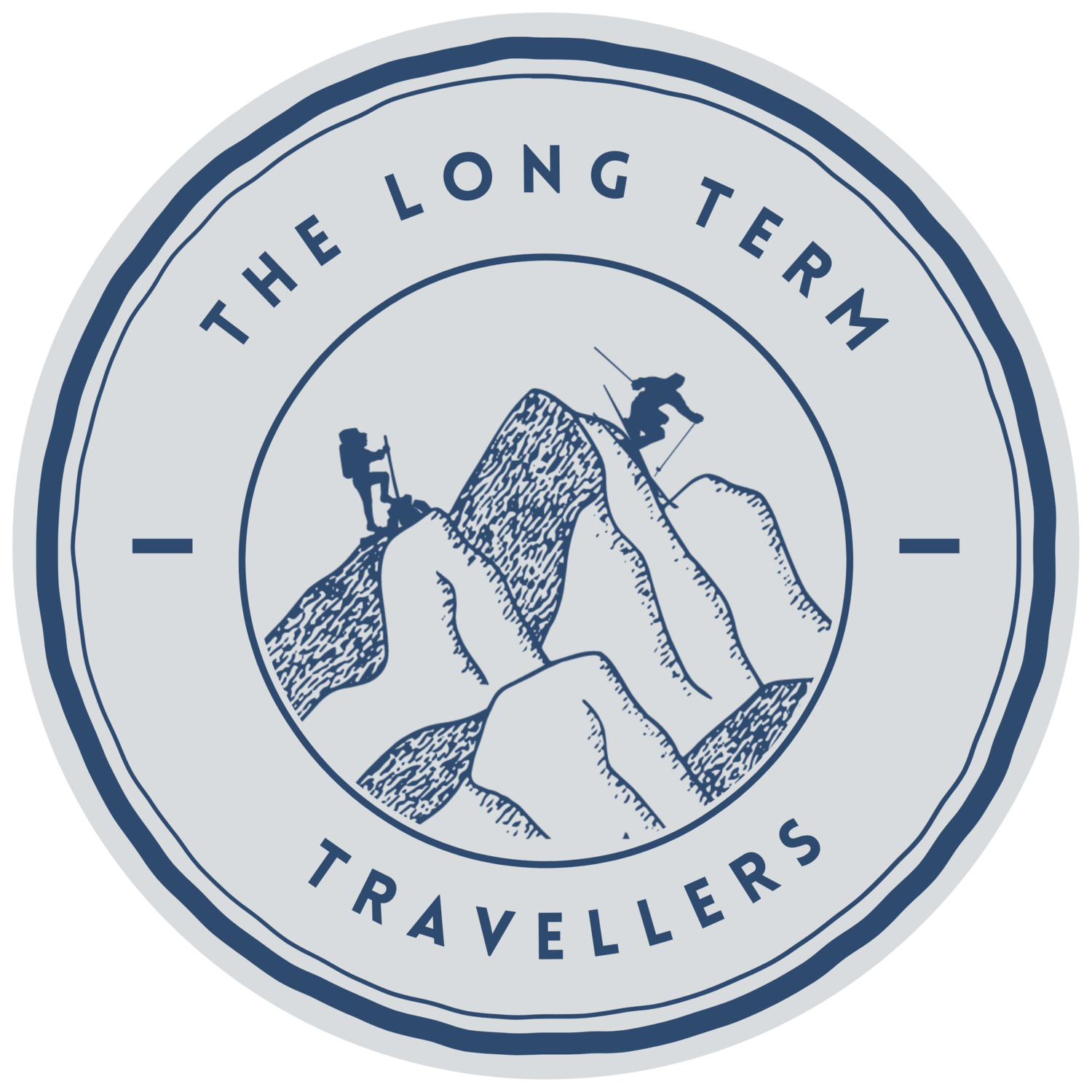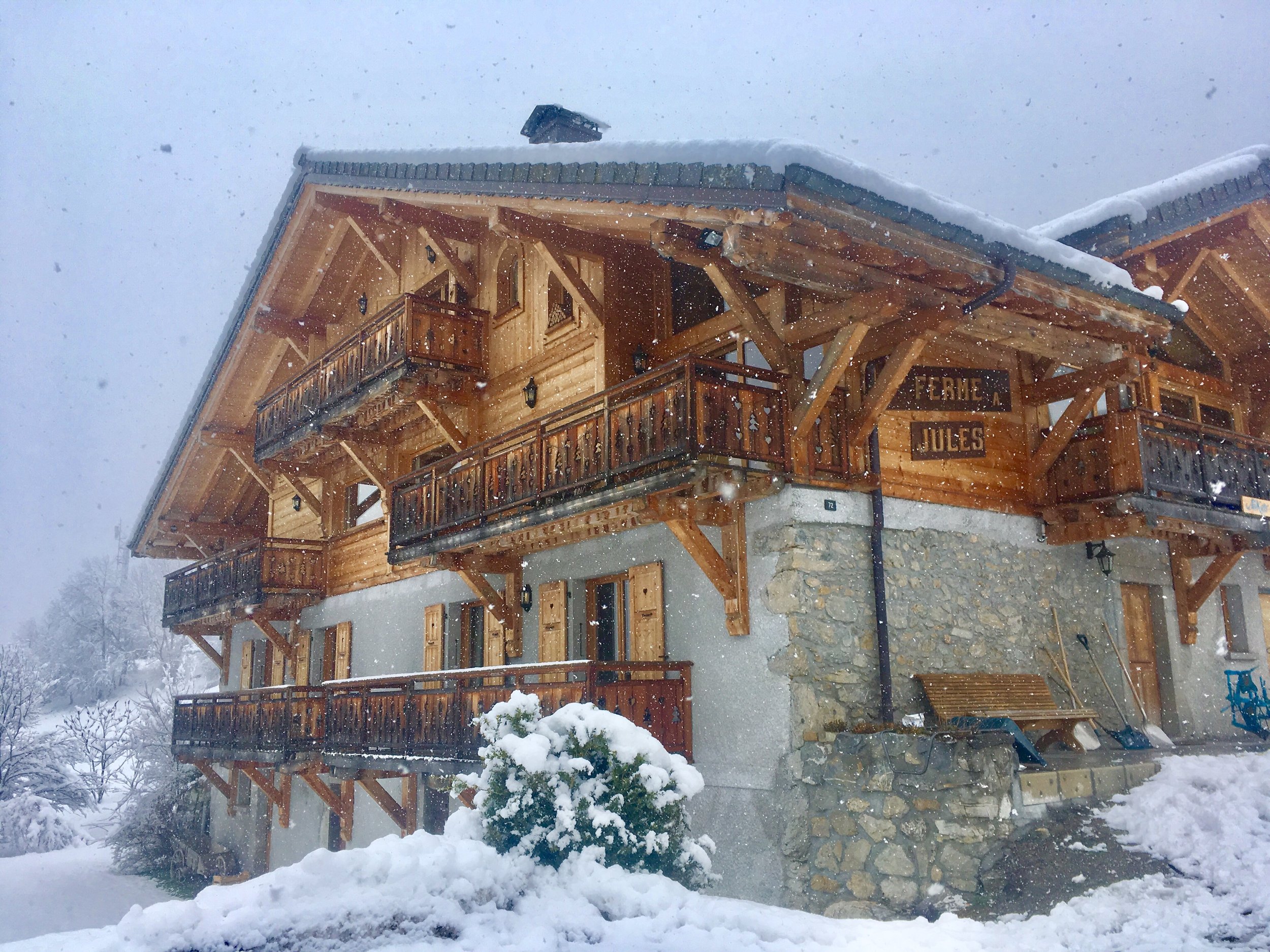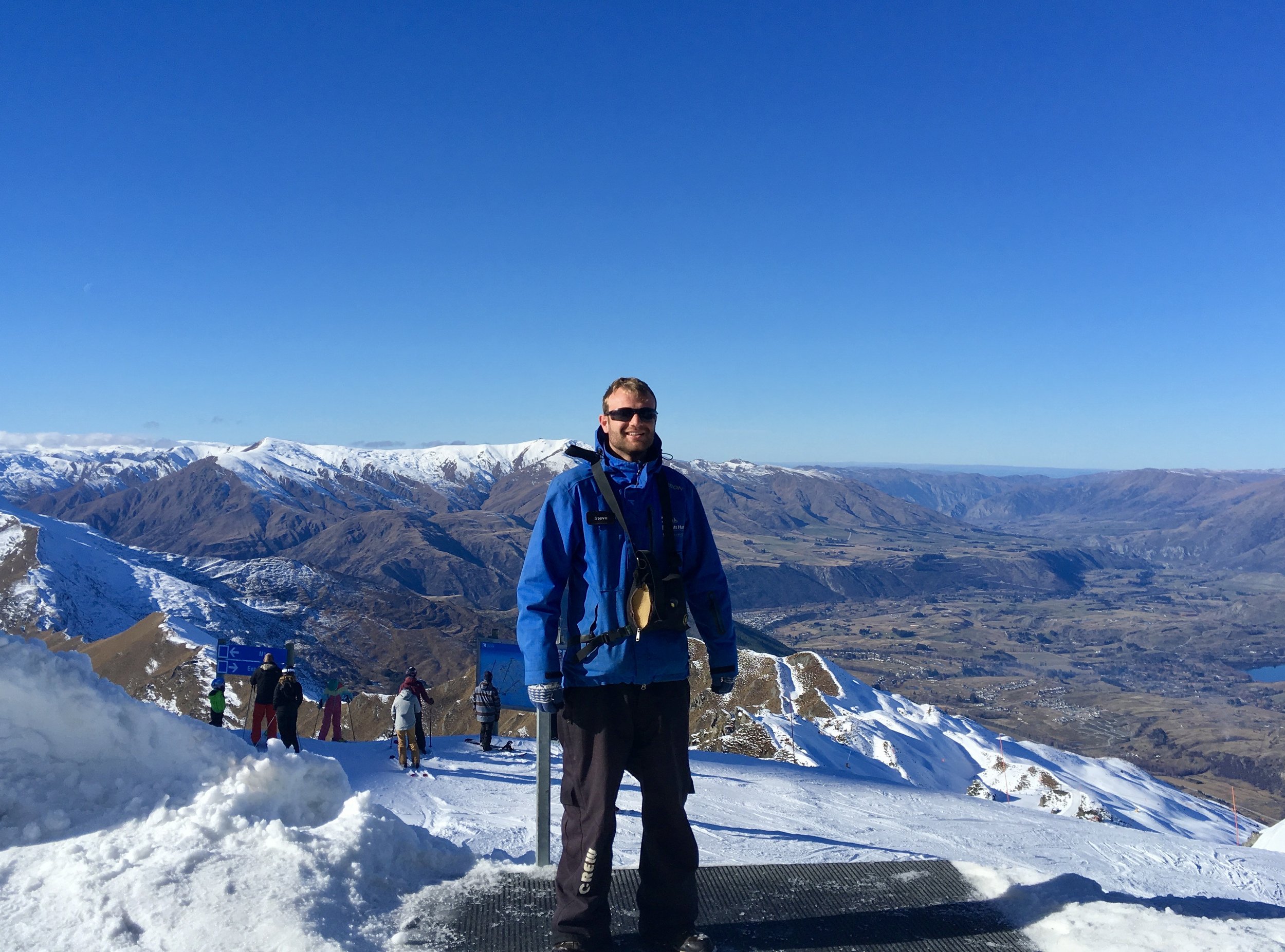A Beginner’s Guide to Working seasonal Ski jobs
Ever dreamed of getting paid to ski or snowboard every day?
Although it may seem far-fetched, there are actually quite a few ways to do this, from working within a ski town, remote working within a ski village, or opting for winter seasonal work. All pose different pros and cons depending on your situation, but all promise time up on the mountain every winter season, and this post will specifically highlight how to get into seasonal ski work.
Winter seasonal work within a ski resort is without a doubt one of the most popular options for working travellers the world over. There are quite a few job opportunities that encompass a wide variety of specialities and skill sets and no matter what position you apply for, you’re guaranteed to get time up the mountain, and usually the jobs come with many perks in-resort.
Our Experience with Seasonal Work
We’ve been lucky enough to work three full winter seasons in our early-mid twenties, one which saw us working at a Mountain House on the slopes in the Australian Alps, more commonly referred to as the Snowy Mountains (which actually gets more snow than Switzerland!), working as lifties at a local mountain in Queenstown, New Zealand, and working as chalet hosts in a 5 star catered chalet in the French Alps.
All have been challenging and rewarding in equal measure and required a work hard/ play hard mentality which is the tagline of seasonal work. It is without a doubt the best way to advance your skiing and boarding while meeting great people and learning new skills, all the while giving you the opportunity to save.
What’s in this post:
What is Seasonal Work?
Where Can You Go?
What Can You Do For Work?
Do I Need Prior Experience?
How Much Can I Earn?
How Can I Apply?
What is Seasonal Work?
What do we mean when we say seasonal work?
Very popular among working travellers, seasonal work refers to contract-based employment through a company that only operates during a particular season of the year, usually through the summer or winter seasons.
One of the best parts about seasonal work is that you get to meet and interact with a diverse group of people. We’ve worked alongside teenagers and retirees, ethnicities and backgrounds that span six continents, and people with varying life experiences and skill sets. Although every single one had different reasons for being there, we all shared the common likeness for wanting to be around the snow.
You usually have to start applying for seasonal work months in advance, meaning that you would have to start applying for a Northern Hemisphere summer season in January/ February, and a winter season in August. Companies who employ seasonal workers usually have an accepted percentage of turnover as the staff sign up for short contracts, and thus, expect to recruit all year round. For tips/ tricks for applying to seasonal work, subscribe/ follow us on the blog.
Seasonal work can be tough, but is immensely fulfilling and can allow you to live in some of the most beautiful places in the world.
The Canadian Rockies is a major hotspot for working holiday travellers looking to chase the snow, and Banff National Park is our favourite spot to be based while over in Canada. Check out our guide to their three resorts below:
Where Can You Go?
From December to Early April, the Northern Hemisphere’s top places to go for the snow are Canada, the United States, Europe, and Japan.
From June to late September, the Southern Hemisphere’s top places to go for the snow are Australia, New Zealand, and South America.
There are ski resorts both small and large within all of these countries/ continents, that all offer different kinds of work, salaries and experiences. Some things to think about when looking for a place to go is; size of resort, location to nearest cities/ towns, available transportation, cost of living, minimum wage, what kind of tourist demographic comes to the resort, etc.
What is considered a pro or a con about each resort, or resort town, is very subjective to what you’re looking to gain from the experience.
The town of Morzine/ Avoriaz, our base for the 2018/2019 winter season.
What Can You Do For Work?
There are so many different kinds of roles that you can apply for. Keep in mind that if you do apply for a seasonal role, holidays are not typically given in the same way as permanent employment. This means that when you commit to a seasonal job, you’re usually committing to the entire season.
Seasonal
There are two ways to look for seasonal positions, one is looking to work for a ski resort, and the other way is to look for companies that operate within a ski town (meaning a town close to/ operating out of a resort). The latter usually had a seasonal influx of recruitment as resort towns bring in more guests during the season, meaning they need more bodies to operate.
Ski Resorts
For ski resorts, there are a plethora of jobs including; guest services, maintenance (including specialised trades), gate attendants, ski instructors, snowboard instructors, ski guides, lift attendants, retail, rentals, food and beverage attendants, bus drivers, administrators, and management across the board. Some resorts will also own affiliate hotels and businesses, which would then include positions such as housekeeping, front desk, night auditors, laundrettes, and again administrators and managers. The number of positions and diversity of the work available will depend on the size of the resort.
Ski Town
For work within a ski town, this means that really everything and anything is possible for work, you’d just have to see how big the town is and what is available. There are always a large amount of work within the tourism industry, (like chalet hosting in Europe), as are retail jobs, but because there is an influx of visitors, other local businesses may see an influx in customers as well, including massage, fitness instructors, and adventure companies that specialise in guiding, ski touring, and the like. Research the ski town that you’re eyeing up and see what businesses operate and who’s recruiting.
The PDS is a very popular hotspot for ‘seasonnaires’ (winter seasonal workers) and with 12 resort towns to choose to be based in, work is easy to find if you get your visas right. Check out our guide to the area below:
What About Non-Seasonal/ Year-Round Options?
If you’re looking to move/ re-locate to a ski town permanently, non-seasonal is definitely something to consider. Like we mentioned above, there is an option to be able to work remotely or apply for a job within a ski town that offers a full-time permanent contract.
The most obvious thing that you can gain out of working a ski season is the time you spend up the mountain. Even if you get a mainstream job in a resort town, you’ll have the opportunity to spend days off, weekends, and breaks up the slopes. If you’re looking to get better on your skis or board, it’s the best place to be.
For more info about working remotely within a ski town, subscribe/ follow us on the blog.
We had a great experience being chalet hosts in the Portes du Soleil region of France/ Switzerland, and this was largely due to the company we worked for being incredible.
Do I Need Prior Experience?
It absolutely depends on what job you’re after, but the short answer is no, you don’t. If your only aim is to get up on the mountain to work, whether that’s for a career break, sabbatical, gap year, or lifestyle change, there are many entry-level roles, offering you the opportunity to gain new skills and work your way up. As long as you have the enthusiasm and willingness to work hard, you’ll be able to find positions in most areas of work, either on or off the mountain. Any previous experience will only make your application stronger, or will allow you to apply for more senior roles, but they are not required.
This being said, if you are looking to progress into more senior or specialised roles, some prior experience will be needed. For example, you’ll need an instructor qualification and some experience if you want to apply to be an instructor, you’ll need hospitality and management experience if you want a senior position, etc.
How Much Can I Earn?
Earning potential for seasonal work is best looked at from the lens of relative versus absolute income. It should be said first that if a high salary is something that is very important to you, I wouldn’t recommend following the snow. No one comes to work on the hill to be a millionaire (unless say, you’re looking to open a business in a ski town).
This being said, you do have the potential to earn quite a lot from working a season. It completely depends on the kind of job you get, whether it includes accomodation/ food/ other benefits, cost of the lift passes of the resort you’re in, the currency of the country you’re in, and how much you personally spend. As an example of how you can do this, please see our experience of saving during our seasons below.
On the other hand, if you choose a job that doesn’t incorporate a lot of benefits (ex. where you find and pay for your own accomodation, where you have to purchase your own lift passes etc.), or live a lifestyle that demands more income, then you may find it hard to save. Resort towns can be extremely expensive to live in and skiing can be an expensive hobby, so you may find that even with the job you have, you can break even through the higher cost-of-living.
How we saved during our ski seasons
In some of the seasonal roles we’ve worked, we didn’t spend a penny of our wage, all of it going straight into our savings and other investments. The wage itself may be construed as smaller relative to what we could get in a city, but in terms of outgoings, we had none. This meant that looking at our wage purely as a figure for monthly savings, it was quite substantial. These were the positions that covered our entire living expenses, including accommodation, food, transport, and lifestyle - the likes of a winter season pass or rental gear in the winter. As we have little vices and don’t tend to spend, unless on travel, it ended up being the perfect place for us to save.
If you’re wanting to save a bit extra… look for resort jobs that offer a more comprehensive package. Look out for the following:
Free or subsidised accomodation
Free or subsidised transportation (to/from the resort and within the resort)
Free or subsidised food/ drink
On-mountain benefits, including; free lift pass, lessons, rental equipment, discounts in town
Other benefits, including; dental, medical, pension contributions, paid holiday days, etc.
Lift work was surprisingly fun but also hard work! It was the position that we got the most on-mountain time.
How Can I Apply?
Depending on if you want to do the Northern, or Southern Hemisphere, start by narrowing in on a country or general area, and choose a few resorts to send through applications.
If you’re applying for seasonal work….
Like we mention above, ski resorts start looking for applicants about 4 months before the season begins - for the Northern Hemisphere winter, applications typically open late August/ Early September, and for the Southern Hemisphere winter, applications typically open in February. It might seem a little tedious to be so far in advance, but the nature of the industry demands it. If you’re in country they’ll expect you to come in person, or if you’re out of country, Skype or video call will be accepted.
Go to the resort website and look out for their Careers page; it will give you a list of jobs that they’re recruiting for, what the application timeline looks like, what is included within the various positions, and it can give you an idea on what it’s like to work at the resort. Most applications can be filled out and submitted online. If in doubt of when to apply, look in early or drop your resort of choice a message enquiring about when they begin accepting applications!
For non-seasonal work, seasonal or non-seasonal…
If you’d rather find work once you’ve already re-located, rock up and start handing out applications. Keep in mind that resort towns can be expensive, so have a bit of savings behind you so you don’t put yourself in a tough spot before the season begins.
If you are more keen to plan ahead, there is no harm in asking around a few months prior to you arriving. Think about what line of work you’d want and ask employers when applications will be accepted, and give them an approximate timeline on when you think you’ll be coming. Having at least a basic idea on what’s in the area can be good to hit the ground running when you move over.
Whether you’re wanting to do a season between jobs, have a corporate career break, a midlife sabbatical, or looking to pursue the snow as a full-on lifestyle, the winter seasonal experience can be such a positive experience. Even for those looking to continue to pursue their career while enjoying their time off on the hill, remote working is such a popular choice these days or finding a similar position within your ski town of choice can be a great option.
The ski scene brings out so many different kinds of people, and it can give you some great new friends, improve your on-mountain skills unbelievably, and give you a unique perspective on a new way of life.
Happy Skiing,
Sam and Steve
You may like…..










Banff National Park is renowned for being one of the best destinations in the world for skiers and snowboarders. Updated for the 2022/ 2023 season, our guide goes over where to stay, which pass options to choose and the best ways to get to and from the slopes.